Pox (58 page)
Authors: Michael Willrich

Acknowledgments
Generous fellowships and grants underwrote this project. The Radcliffe Institute for Advanced Study at Harvard gave me a full year to do the initial research and furnished a marvelous setting in which to do it. I am immensely grateful to Radcliffe, to the brilliantly diverting Fellows Class of 2004â5, and especially to Drew Faust and Judy Vichniac for the gift of that year. I am also deeply grateful to the American Council of Learned Societies for the Charles E. Ryskamp Fellowship (named for a warm and generous scholar no longer with us), which bought me a full year of writing time and other support. Brandeis University provided a semester of leave time on each end of this project, as well as smaller grants to cover costs, for all of which I give thanks.
I owe a special debt to four exemplary historians who wrote in support of my fellowship applications: my mentor Kathy Conzen, Tom Haskell, Jackie Jones, and Laura Kalman. I hope this book repays your confidence in some small way.
Along the way, I presented pieces from the project to workshops and audiences at the American Society for Legal History, Boston College, Boston University, Brandeis University, Canisius College, Cleveland State University, Harvard University, Johns Hopkins University, New York University, Stanford University, the University of Minnesota, the University of Nevada, Las Vegas, the University of Pennsylvania, the University of WisconsinâMilwaukee, the University of Virginia, and Yale University. I want to thank my many hosts for their hospitality and the members of those audiences for their challenging comments. Ironically, a bout with the H1N1 flu virus (before I had a chance to get vaccinated) forced me to cancel a presentation at the University of Michigan, but I am grateful to Tom Green, Bill Novak, and their legal history students for sending me such crisp comments on my paper. A line here and there in this book first appeared in my article “âThe Least Vaccinated of Any Civilized Country': Personal Liberty and Public Health in the Progressive Era,”
Journal of Policy History
, 20 (2008): 76â93; I wish to thank the journal for permission to use that material here.
Journal of Policy History
, 20 (2008): 76â93; I wish to thank the journal for permission to use that material here.
I also want to thank Ann Mary Olson, who provided excellent research assistance during my year at Radcliffe; and Fred Turner, who did some helpful digging for me in the Spooner Papers.
A great many friends and colleagues read pieces of this project along the way or heard me out as I worked through my ideas in conversation. For their insights, research leads, and camaraderie, I particularly want to thank Brian Balogh, Norma Basch, Mary Bilder, Henry Bolter, Chris Capozolla, Andrew Cohen, Tino Cuellar, Jane Dailey, Matt Daniels, Michele Dauber, Peter Garlock, Patsy Gerstner, Julian Go, Bob Gordon, Sally Gordon, Hank Greely, Rob Heinrich, Daniel Hulsebosch, Robert Johnston, Michael Katz, David Kennedy, Daniel Kosoy, Dan Kryder, Gerry Leonard, Jill Lepore, Kenneth Levin, Charlie Lord, Rob McGreevey, Harry Marks, Bill Novak, Robert Orsi, David Rabban, Heather Richardson, Elizabeth Sanders, Dennis Scannell, Mark Schmeller, Bruce Schulman, Daniel Sherman, Lindsay Silver Cohen, Ross Silverman, Jonathan Stapley, Tom Sugrue, David Tanenhaus, Geoff Tegnell, Chris Tomlins, Barbara Welke, John Witt, Rich Young, and Julian Zelizer.
I am proud to be a founding member of a Boston area writing group that over the past six or seven years has included the likes of Steve Biehl, Jona Hansen, Jane Kamensky, Stephen Mihm, Mark Peterson, John Plotz, Seth Rockman, Jennifer Roberts, Dan Scharfstein, and Conevery Valencius. Many thanks to you all for your sharp comments, good company, and the example of your fine prose.
Brandeis University has been my institutional home throughout this project. It is in many ways a remarkable place, and I feel blessed to have such outstanding students and engaging colleagues. In particular, I want to thank Dean Adam Jaffe and Provost Marty Krauss for their continuing support and all of my colleagues in the History Department for their warm collegiality and intellectual engagement. I have learned a good deal from Rudy Binion, Greg Freeze, Paul Jankowski, Bill Kapelle, Alice Kelikian, Govind Sreenivasan, and Ibrahim Sundiata. I especially want to thank a small group of colleagues with whom I have worked especially closely over the past decade in the American History Graduate Program: Silvia Arrom, Brian Donahue, David Engerman, David Hackett Fischer, Mark Hulliung, Jane Kamensky, and my much missed colleague, Jackie Jones. I owe a special thanks to Jane Kamensky, who has been a constant source of ideas, moral support, and excellent humor.
I am especially grateful to a few individuals who read a draft of the manuscript late in the game and who provided thoughtful, expert comments: Art Bookstein (my father-in-law and a voracious reader of nonfiction), Jon Cohen (a close friend from our
City Paper
days and a first-rate science writer), David Igler (one of my oldest friends and a stellar historian), Charles E. Rosenberg (the dean of medical historians), and Conevery Valencius (who possesses an unusually deep knowledge of the medical beliefs of rural nineteenth-century Americans). D. A. Henderson, a man whom I have never met (but about whom I have read a great deal due to his leadership of the World Health Organization's smallpox eradication program), generously read the manuscript and provided expert comments. Like most people today, I have never seen a case of smallpox, and it was both intimidating and rewarding to be able to share this project with a scientist who knows the disease and its ways so well.
City Paper
days and a first-rate science writer), David Igler (one of my oldest friends and a stellar historian), Charles E. Rosenberg (the dean of medical historians), and Conevery Valencius (who possesses an unusually deep knowledge of the medical beliefs of rural nineteenth-century Americans). D. A. Henderson, a man whom I have never met (but about whom I have read a great deal due to his leadership of the World Health Organization's smallpox eradication program), generously read the manuscript and provided expert comments. Like most people today, I have never seen a case of smallpox, and it was both intimidating and rewarding to be able to share this project with a scientist who knows the disease and its ways so well.
Laura Stickney at the Penguin Press has been an ideal editor for this book. As fluent as she is smart, she has edited with a sharp eye and a light hand. I am also grateful to my outstanding agent, Geri Thoma, for her unflagging support and for helping me find my way in the world of trade publishing.
I owe everything to my family.
Art and Lynne Bookstein have given me steady, unconditional support since I married their beautiful daughter fifteen years ago. Many thanks to Dari Pillsbury, who is a great friend and our in-house photographer extraordinaire.
Through their steadfast love, encouragement, and the example of their own lives and work, my parents, Mason Willrich and the late Patricia Rowe Willrich, nurtured my passions for reading, writing, and teaching, and I thank them both for everything. I also wish to thank Wendy Webster Willrich for her support. I am deeply grateful to my siblings and their wonderful partnersâChris and Susan, Stephen and Kelly, and Kate and Erikâfor challenging me and supporting me through the years. You're an amazing family, and I am lucky to have you. I'll see you soon on Stinson Beach.
I have saved my greatest debts for last, knowing words will never be enough. Max and Emily, I am so proud of you both. Thank you for your constant reminders of the things that really matter. I love you. And Wendy Jayne Willrich, you
know
I couldn't have done it without you. You know the tune: “I'm giving you a longing look....” With respect, gratitude, and the deepest love, I dedicate this book to you.
know
I couldn't have done it without you. You know the tune: “I'm giving you a longing look....” With respect, gratitude, and the deepest love, I dedicate this book to you.
Â
Wellesley, Massachusetts
Notes
ABBREVIATIONS USED IN NOTESArchival Collections
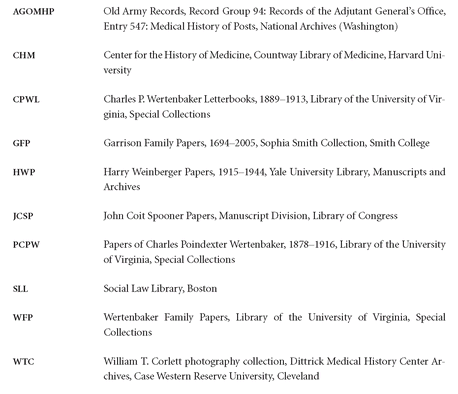
Published Government Documents

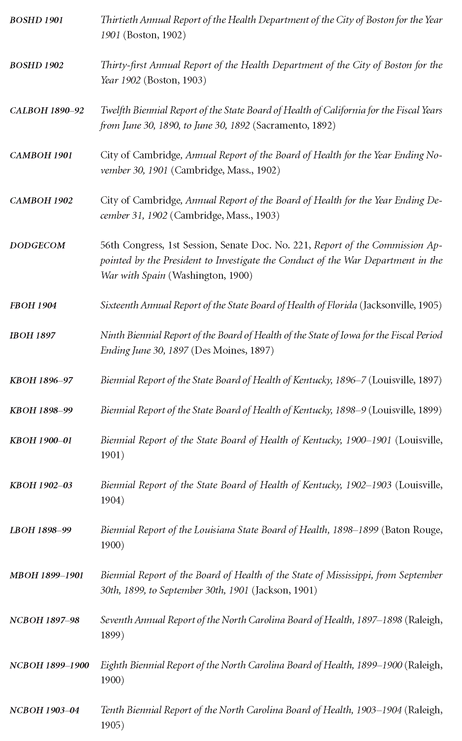
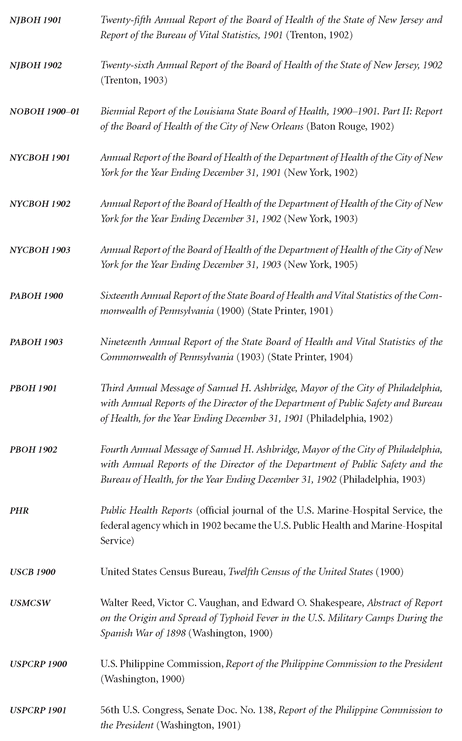
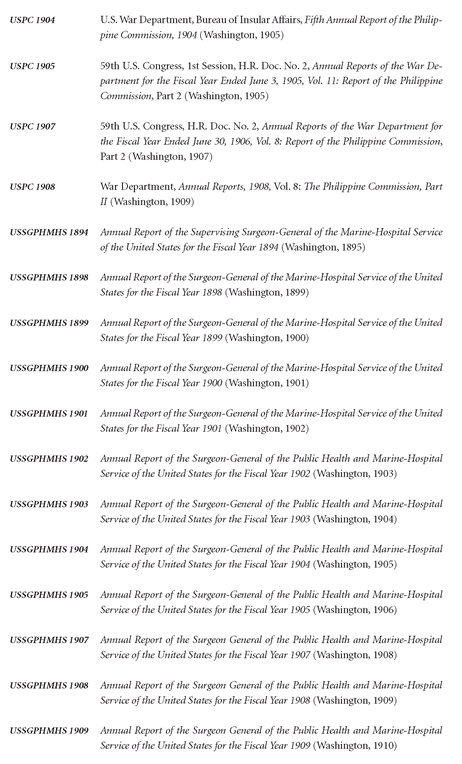

Frequently Cited Journals
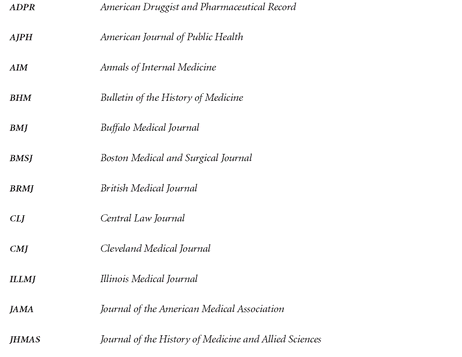
Other books
Mary's Guardian by Carol Preston
On the Fifth Day by A. J. Hartley
Norton, Andre - Novel 39 by The Jekyll Legacy (v1.0)
Reign: A Royal Military Romance by Roxie Noir
The Prospects (Book 2): Nothing Poorer Than Gods by Halayko, Daniel
Jack Glass: The Story of a Murderer by Roberts, Adam
El sol desnudo by Isaac Asimov
El and Onine by Ambroziak, K. P.
Best Laid Plans by Patricia Fawcett
Alutar: The Great Demon by Tuttle, Richard S.
